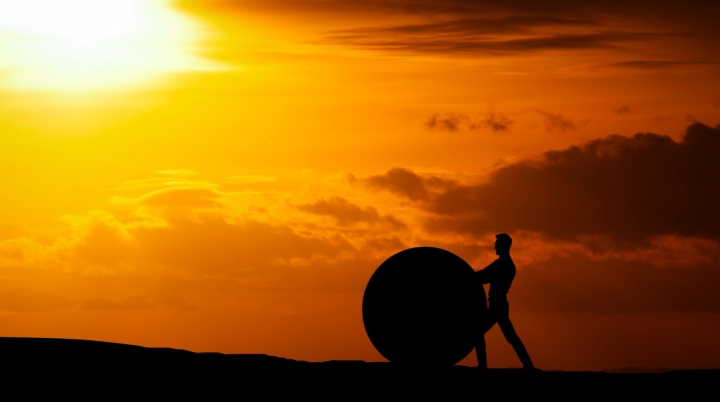
We never learned how to live. Out of an infinite nothing we are thrown completely unprepared into an existence that was impossible for us to choose. If we were to be given a say beforehand, it is not unlikely that we would fiercely resist such a life. Obviously, we do not always have a choice. Which is not without irony, as the perpetual mantra of Western industrial societies is that we only have to take our lives into our own hands to achieve everything we dreamed of. Being able to choose from a plethora of options is one of the great civilisational achievements of our affluent capitalist society. I really intend that as I write it now. We live in incredibly rich and privileged societies. Today, when we argue about extending equality or the recognition of multiple genders, it is a reminder that we are far from living in a perfect but very civilized society – an immense advance over the realities of past decades or even centuries. Recognizing this status quo as good and valid is important in order to understand the background to this work. For although we are fortunate to grow up in this privileged part of the world, every one of us faces a fundamental, overshadowing question: How does life actually work?
Despite all the quality of life we have gained, too few people still seem to have any idea of the basic building blocks of human existence. Otherwise it can hardly be explained that for many children in this country school starts still take place at biologically completely nonsensical times, while sleep researchers have been struggling for years to postpone the starting time in educational institutions. Or that the WHO now counts both obesity and opponents of vaccination among the greatest challenges to global health. The immense number of people with mental illnesses, their continuing stigmatization and a significant lack of access to treatment should also give sufficient cause for thought. But even when body and mind are in the prime of health, we often lack the knowledge to use both to our advantage.
We are thrown into the world and nobody tells us exactly what we should do now. Instead, we imitate our social role models, who often don’t know better themselves, move within a self-confirming cycle, get older, make the same mistakes as everyone else, and eventually die. Of course, this pattern does not apply to everyone to the same extent, but some aspects will be recognized by all of us. I am convinced that this cycle can not only be broken, but changed for the benefit of all.
While writing this work, I was accompanied by another central question: How do you become happy in a world you don’t understand?
Among the intellectual precursors of this idea for me are the works of the statistician Nassim Nicholas Taleb, the behavior economists Cass Sunstein and Richard Thaler as well as the psychologists Daniel Kahneman and Amos Tversky. Their work will be repeatedly reflected in the respective sections, as their ideas have served as valuable sources of inspiration for my own reflections.
The world around us poses a huge problem for our brains: on the one hand, we have an immense need to recognize causal relationships everywhere – a legacy of our evolutionary prehistory – on the other hand, the world is often too complex for us to actually see these relationships. Over many millennia of human history, however, such a need has been very beneficial. Those who quickly realized that it was better not to compete alone against a mammoth or that fire ensured that it remained warm even in winter, had an undeniable survival advantage. Just because causal connections are not always apparent doesn’t automatically mean that they don’t exist and that we can’t derive helpful insights about the world from them.
But with an increasing degree of civilization, technology, networking, globalization and all the other beautiful buzzwords that go with it, the demands placed on our brains are also increasing. There are now countless variables that can influence our lives, but only a few of them are actually known to us. Our need to understand and simultaneously control the world faces an immense challenge: we have to admit that we can neither understand nor control most things in life. This brave new world therefore requires alternative strategies that allow us to live within it in the best possible way, without perishing from its challenges.
This work is therefore a combination of strategic guidance, philosophy of life, empirical research and bad humour. In other words, ideal prerequisites for walking through the maze called life with a little more certainty.